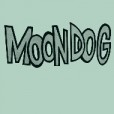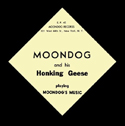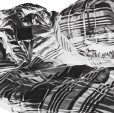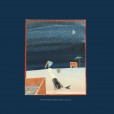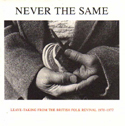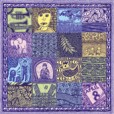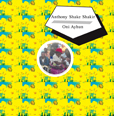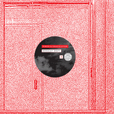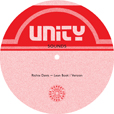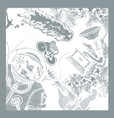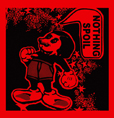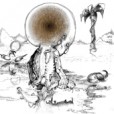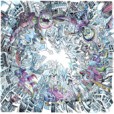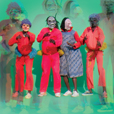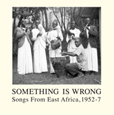Your basket is empty

Originally released by Epic in 1953.
Originally relelased on the Moondog label in 1955.
At its darkest and most driving. The group is clear and unanimous — this is their best yet.
At its most open, shifting and expressive to date. For all the music’s complexity and deep coherence, freedom is the key. At times it grooves hard; at others it’s lush, romantic.
With Tikiman and Marc Muellbauer.
A handful of LPs signed by Moritz!
Tony Allen, Max Loderbauer and Moritz von Oswald; mixed by Ricardo Villalobos.
Moritz from Basic Channel and Rhythm And Sound, alongside Vladislav Delay (Chain Reaction) and Max Loderbauer (Sahko): a dream crossing of classic Berlin techno, On-The-Corner Miles, Larry Heard, and Can.
Though music journalists made a big deal recently about the release of a 1965 rehearsal tape by Derek Bailey’s Joseph Holbrooke trio with Gavin Bryars and Tony Oxley, those early efforts were mere tentative steps along a cliff edge wearing a line safely attached to Coltrane. There’s still a whiff of jazz to Bailey and Parker’s work with the Spontaneous Music Ensemble up to and including 1968’s Karyobin.
But with the addition of Jamie Muir — the first great free improvising percussionist who didn’t start out as a jazz drummer — and the way-leftfield electronics of Hugh Davies, the MIC leapt right off that cliff.
These six tracks — tight, electric, pointillistic, brilliant, uncompromising and exhilarating — sound like nothing else that came before.
In a word, seminal.
‘***** beautiful, deeply affecting… hard to beat as the year’s most worthwhile reissue’, The Guardian; ‘magnificent… wonderfully austere’, Time Out.
This is lovely.
Brand new, rambunctious, rootsy, spiritual brass-band music from Lagos, with singing, drums and home-made percussion.
Obadikah is a group of old friends who play together in the Cherubim & Seraphim and Baptist churches of the Ikeja and Isale Eko districts. A couple of them were founder-members of the Eko Brass Band; they’ve played with pretty much all the key Nigerian reggae artists.
The tunes are mostly traditional Yoruban melodies, often sung at bed-time. The songs are mostly original, sung in Yoruba (though Jomido is an Egun song from the Badagry area of Lagos state).
Fiercely brilliant, slashing, whooping dance music from Oni — all-original, no samples — and a stonking Detroit thumper from the master.
A dazzling survey of the last, bohemian flowering of the so-called Golden Era of Ecuadorian musica national, before the oil boom and incoming musical styles — especially cumbia — swept away its achingly beautiful, phantasmagorical, utopian juggling of indigenous and mestizo traditions.
Forms like the tonada, albazo, danzante, yaravi, carnaval, and sanjuanito; the yumbo, with roots in pre-Incan ritual, and the pasillo, a take on the Viennese waltz, arriving through the Caribbean via Portugal and Spain.
Exhumations like the astoundingly out-there organist Lucho Munoz, from Panama, toying with the expressive and technical limits of his instrument; and our curtain-raiser Biluka, who travelled to Quito from Rio, naming his new band Los Canibales in honour of the late-twenties Cannibalist movement back home, dedicated to cannibalising other cultures in the fight against post-colonial, Eurocentric hegemony. He played the ficus leaf, hands-free, laying it on his tongue. One leaf was playable for ten hours. He spent long periods living on the street, in rags, when he wasn’t in the CAIFE studio recording his chamber jazz-from-space, with the swing, elegance and detail of Ellington’s small groups, crossed with the brassy energy of ska — try Cashari Shunguito — and an enthralling other-worldliness.
Utterly scintillating guitar-playing, prowling double bass, piercing dulzaina, wailing organ, rollicking gypsy violin, brass, accordion, harps, and flutes. Bangers to get drunk and dance to. Slow songs galore to drown your sorrows in, with wildly sentimental lyrics drawn from the Generacion Decapitada group of poets (who all killed themselves); expert heart-breakers, with the raw passion of the best rembetica, but reined in, like the best fado.
Fabulous music, like nothing else, exquisitely suffused with sadness and soul. Hotly recommended.
Sumptuously presented, in a gatefold sleeve and printed inners, with a full-size, full-colour booklet, with wonderful photos and excellent notes. Limpid sound, too, courtesy of original reels in Quito, and Abbey Road in London; pressed at Pallas.
The two dubstep pioneers at the top of their game. Truly an album, the music is multi-levelled — dark as anything at times, but engrossingly varied and emotionally shaded, always on the move.
Extra to the LP, with a magnificent, epic, head-scrambling remix, more spaced and spooked than the original. Shackleton’s dream liturgy fully unfolds — an eerie, garbled sublimity, a kind of black-magic plainsong.
A bobbing, minimal groover from the Berlin corner, dug-in and funked-up over ten minutes; and icily original, top-dog work from Pev, tethered between a kind of arrested Highlife and a Detroit breakout.
‘If you are poor, you walk in your shoes, you lean.’ Three Unity revive 12s in today, remastered and in spanking new sleeves. Altogether, as a label, the greatest UK digi there ever was.
Three deep funk instrumentals — HBE on the opener. Sound-wise, doubly lethal, as alive as vinyl gets. Silvered, silk-screened sleeve.
Two exclusives: Erykah Badu’s irresistible do-over of the euphoric album instrumental There, with Malian synth-freak Tidiane Seck; and a dub by Mark Ernestus. Lovely silk-screened sleeve.
West London broken beat meets JA dancehall. A Co-op classic by this Bugz mainstay.
Killer EP. Next-level Shackleton.
Taking off from Beaugars Seck’s foundational sabar drum rhythms — recorded by Sam in Dakar in February 2020 — Shackleton has constructed a trio of intricately layered, luminous, enchanted, epic excursions. The second is more dazzled and meandering, with jellied bass, insectile detail, and discombobulated jabbering; the third is more liquid, fleet of foot, and psychedelic, with a grooving b-line and funky keyboard stabs, scrambled eastern strings and hypnotic vocalese.
The harmonium in The Overwhelming Yes sounds like Nico blowing in chillily from up the desert shore.
The overall mood is wondrous, twinkling with light, onwards-and-upwards; an uncanny, dubwise mix of the ancient and the futuristic.
Mark Ernestus’ Version is stripped, trepidatious, mystical, and stranger still, with just a snatch of the original melody, extra distortion and delay, and crystal-clear drum sound.
So… Twenty minutes of startlingly original music, with Shackleton the maestro at the top of his game, and a characteristically evilous dub by Mark Ernestus. Mastered by Rashad Becker; handsomely sleeved.
Sick to the nth. Love 4 Ever.
No-one else makes music like this: devilishly complex but warm and intuitive, stirring together a dizzying assembly of outernational and outerspace influences, whilst retaining the subby funk-and-hot-breath pressure of Shackleton’s soundboy, club roots.
The result is an evolutionary, truly alchemical music — great shifting tides of dub, minimalist composition and choral song (Five Demiurgic Options); ritual spells to ward off the darkness (Before The Dam Broke, The Prophet Sequence); radiophonia and zoned-out guitar improv (Seven Virgins); even the febrile, freeform psychedelia of eighties noise rock (Sferic Ghost Transmits / Fear The Crown).
Over the five years since Music For The Quiet Hour, Vengeance’s vocal and lyrical range has rolled out across this new terrain. Throughout these six transmissions he’s hoarse preacher, sage scholar and ravaged bluesman; blind man marching off to war, and exhausted time-traveller warning of impending socio-ecological catastrophe.
Six dialogic accounts of our conflicted times, then, expanding beyond the treacly unease of the duo’s early collaborative work into something subtler and more emotionally shattering — its shades of brightness more dazzling, and its darkness even murkier.
“We almost didn’t hear it when the foundations went.”
Shackleton’s most expansive, ecstatic and hallucinatory music to date. Four extended excursions channeling Congotronics way to the east, with an aura of restrained mania reminiscent of the feral pomp and gallows humour of Coil’s moon-musick phase.
The pairing with Tomasini is a match made in heaven. Swooping from deep growl to piercing falsetto, his four-octave voice both heightens the taste for the theatrical that’s always been integral to Shackleton’s music, and makes explicit the latter’s kinship to the occult energies of the UK’s post-industrial underground.
As the title suggests, these are shadowy songs rich with allusions to bodily ritual and psychic exploration, with Tomasini’s lyrics framed by luminous whirls of hand-struck drums and synthetic gamelan, bells and tumbling organ melodies, all earthed by dubwise bass. You Are The One escalates from delicate choral chant to full-bore psychedelic organ freakout; Rinse Out All Contaminants is a slow incantation, to purge all negative thoughts; the melodies of Father You Have Left Me are smudged like early Steve Reich, then burned out by snarling subs; and the magnificent Twelve Shared Addictions balances elliptical melodies like spinning plates, gradually unfurling into a breakneck storm of voice and hammered keys.
An astounding compilation of the breakneck Shangaan dance output of the Nozinja studio in Soweto, recorded between 2006 and 2009.
‘An album of cathartic intimacy, built around electronic textures and sparse percussion, with White’s gently yielding, half-spoken vocals pitched pleasingly between Laurie Anderson and Joni Mitchell’ (Mojo).
The second half of the CD.
